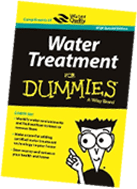As you compare the many ways to treat the water you use in your home, you’ll come to find that there are a variety of systems to choose from. Arguably, reverse osmosis systems are the most popular, thanks in large part to their efficiency.
Many people who opt for a reverse osmosis system do so because they have tested their water and have come to find that it includes high levels of chlorine, sodium, fluoride, radium, nitrites, arsenic, and other harmful chemicals.
While a RO system can address a variety of issues, its end result is the purest form of water you could possibly have to drink and cook with.
Questions to Ask About a Reverse Osmosis System
As you inch closer to a decision on whether a RO system is worthwhile, it is important to ask and answer the following questions:
- What does the installation process entail?
- What type of maintenance is required to keep a RO system working at its optimal?
- Can a reverse osmosis system resolve the issues you are having with your quality of water?
Benefits of a Reverse Osmosis System
There are many benefits of a RO system, with these ones having the biggest impact on your life:
- Improves the taste of your water
- Eliminates contaminants, thus improving your safety and health
- Doesn’t take up a lot of space in your home
- Simple maintenance plan
- Is completely non-electric
Conclusion
Now that you better understand the finer details of a reverse osmosis system, including the benefits, you can decide if it’s the best system for you, your family, and your home.
When compared to other options, many people have come to realize that there’s nothing better than a RO system. It may be time for you to learn more!





